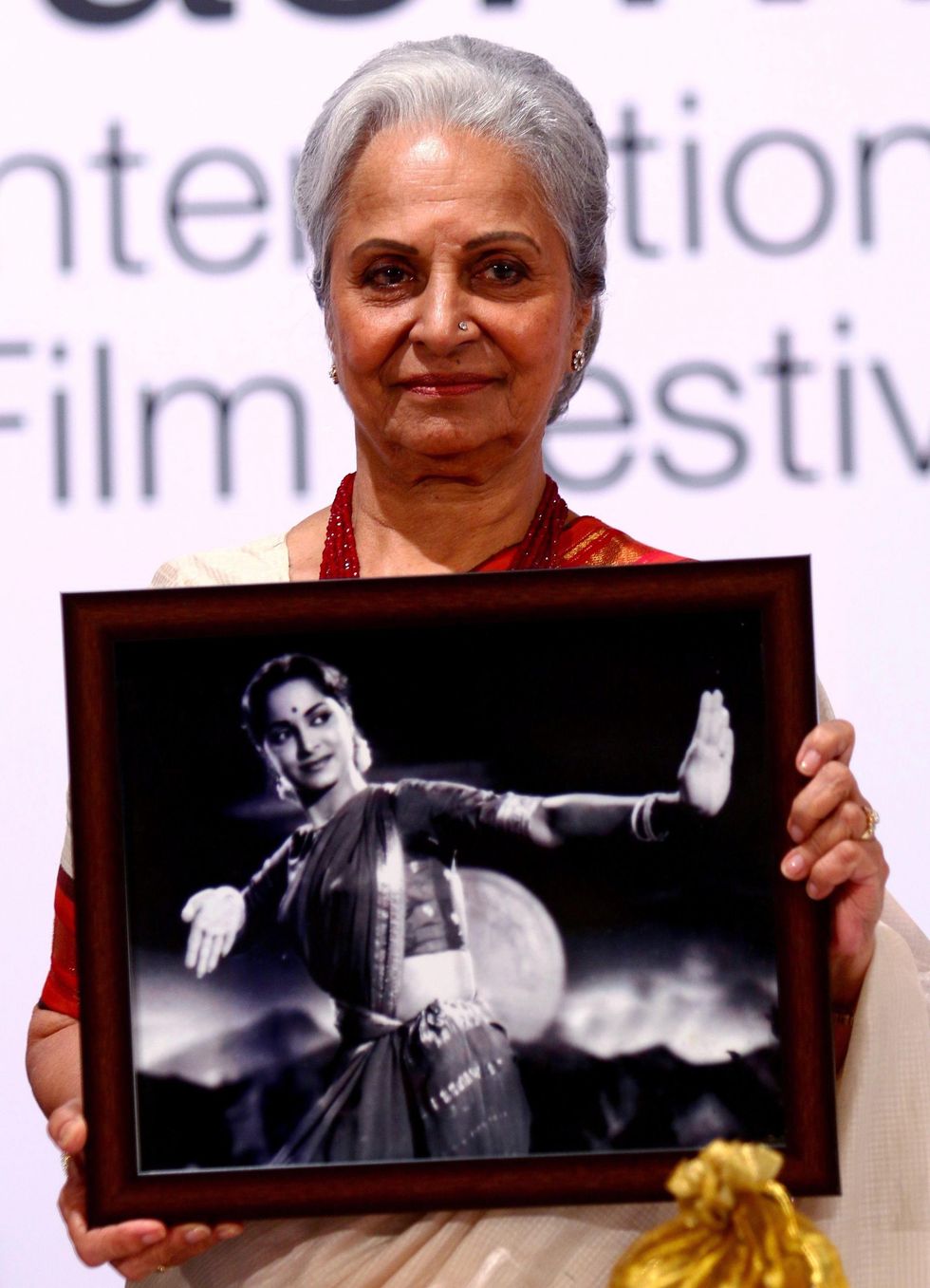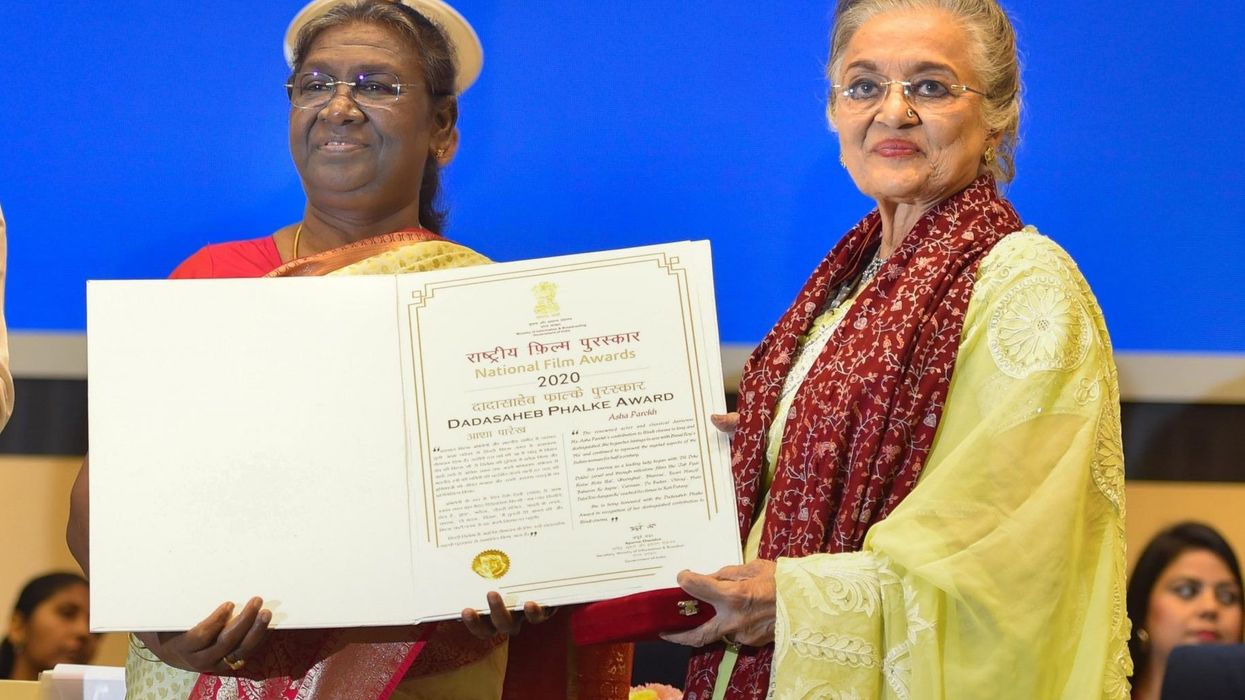HOW DADASAHEB PHALKE AWARD IGNORES FEMALE FILM TALENT
The annual Dadasaheb Phalke Award may be Indian cinema’s highest honour, but there is enough compelling evidence to suggest that it is sexist and part of a broken system.
The award named after pioneering producer-director Dadasaheb Phalke, who made India’s first movie Raja Harishchandra (1913), was inaugurated in 1969.
Despite the first prize being given to legendary actress Devika Rani, the annual honour, selected by what is supposed to be an eminent jury of film personalities, has been horribly discriminatory against women since then, with many worthy candidates being ignored across the decades.
This year’s recipient Asha Parekh puts that into stark perspective because she is the first woman to get the award since Asha Bhosle won in 2000 and only the fourth to win in the past 44 years. There have been 52 recipients and only seven have been women. Reclusive actress Suchitra Sen was offered the award in 2005 but turned it down to stay out of the public eye.
When you consider that those on the jury have the entire Indian film industry in all languages to select from, that is a horribly low number. A big part of the problem is that the annual jury is usually male dominated and don’t bother to think about the immense female contribution to Indian cinema.
A recent year that illustrated how clueless those selecting the winner are was when Vinod Khanna was given the award ahead of Sridevi. Both legends had sadly passed away before the ceremony in April, 2018 but they chose to posthumously honour him despite Sridevi having a much longer career, a greater body of work, making a bigger impact and being the first pan-Indian star. No star, male or female, achieved what the boundary-breaking actress did in different languages, yet she was overlooked. There is no denying that Vinod Khanna was a great actor, but he just didn’t have the body of work, longevity, or the impact to warrant the highest honour.
Like Sridevi, many other great female pioneers and screen icons passed away without getting that recognition. One of the most notable not to be recognised was legendary costume designer Bhanu Athaiya, who was not only the first Indian to win an Oscar, but also had a remarkable body of work across more than 50 years and influenced cinema in the most unique way.
By ignoring women, the annual award ceremony greatly disrespects the legacy of the pioneer it is named after because Dadasaheb Phalke worked hard to get women involved in Indian cinema and introduced Kamlabai Gokhale as India’s first female lead in Mohini Bhasmasur (1913).
Although 80-year-old Asha Parekh was honoured and is a popular winner, there is nothing to suggest that the awards have changed, and it could be decades before another female is considered, despite there being many worthy candidates. It is part of a broken Indian cinema system that continues to hold women back in all areas, from decision- making, creative input and how much they are paid to having very little power to affect positive change. Not properly honouring them fuels that mindset.
Fabulous Indian female film icons who deserve a Dadasaheb Phalke award

Waheeda Rehman: One of the greatest leading ladies in cinema history, she broke through to the big time in the 1950s as a teenager and went on to star in all-time classics. The 84-year-old inspired a generation and made the transition to character roles.
Vyjayanthimala: The first great dancing lead actress in Indian cinema became a strong symbol of girl power and starred in a stunning number of iconic films. The 86-year-old loosened the shackles of the Hindi film heroine and greatly influenced those who followed in her giant footsteps.
Hema Malini: The longest reigning queen of Bollywood was unstoppable throughout the seventies and early eighties. The 73-year-old’s brilliant body of work is matched by few, both male and female.
Aparna Sen: Although she made a name for herself as an incredible actress, many regard the all-round talent as the greatest female filmmaker in Indian cinema history. The 76-year-old continues to make acclaimed films and has the kind of path-breaking work few can match.
Shabana Azmi: The acclaimed actress has pretty much won every Indian film award, except for the biggest prize. The 72-year-old broke boundaries, along with balancing art house films with commercial Bollywood and international cinema.




